SUMMARY
This is AI generated summarization, which may have errors. For context, always refer to the full article.
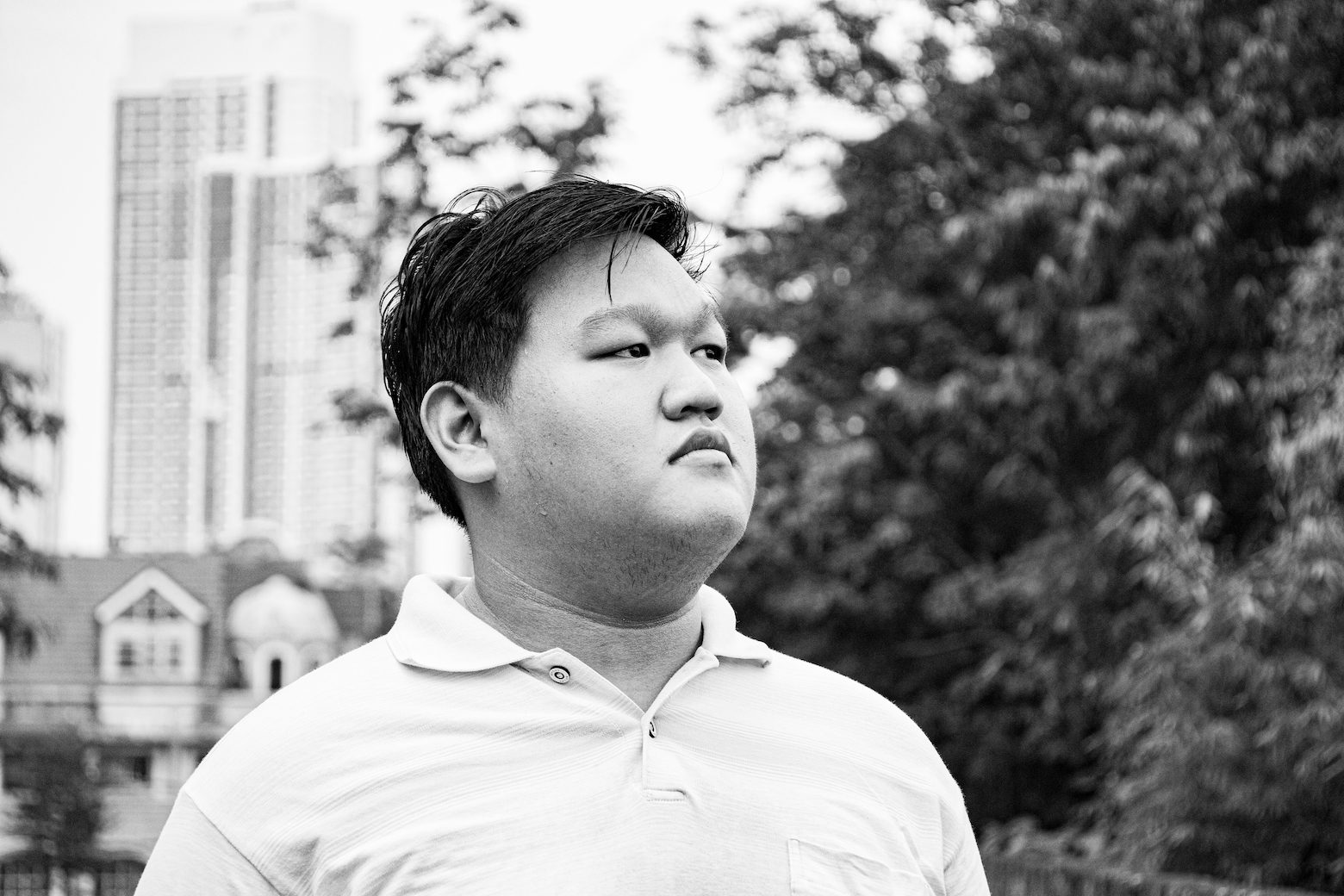
Vicente Mate is a first year journalism student at Colegio de San Juan de Letran in Manila, Philippines. He spends his days at Intramuros, a historic “Walled City” in the heart of the capital, hanging out with his classmates. A bit of a class clown, he tells jokes that are more dark than funny. However, behind this persona are stories of resilience and survival – stories that helped shape Vicente’s interest in journalism.
Vicente grew up in Tacloban, a city in Leyte province in the Visayan Islands, with his lola (grandmother) while his mother worked as a nurse abroad. “When I was with my grandma, it was a complete childhood: love and support,” says Vicente. Eight years later, Vicente’s mother returned to Tacloban to help take care of him. After two years of living with his mother, a disaster changed their lives.
In November 2013, Vicente was 10 years old and set to play in a citywide soccer tournament. Instead, Super Typhoon Yolanda, also known as Haiyan, dismantled the lives of people living in the Eastern Visayas region of the Philippines. Vicente’s home city, Tacloban, was ground zero.
I was an athlete back then, a soccer player. November 6 to 8 was the city meet. On November 6, we played two games. On November 7, the city issued a storm advisory.
November 7 was a fine day. It was sunny. There were no winds even though they told us that Leyte was under storm signal no. 1. “Storm signal no. 1? It will all be good even if I went to the beach today.”
We expected it to be strong. We prepared ourselves according to how we usually prepare for strong typhoons. We live in a subdivision, V&G. It’s actually known as a place that usually gets flooded even after a light rain. So, we decided to seek refuge at the house of my grandmother’s sister in Tacloban’s downtown area.
On November 8 in the morning, we were already hearing whistling sounds. I thought there was a tornado. I remember at 7 am, the signal was lost, the electricity was gone, everything was cut.
We went downstairs. We had our casual meal, hoping we would be fine. The rain started pouring heavily. The waters pushed the door open. So, we started panicking because the current was strong. It was entering the apartment quickly. My mom brought me upstairs, and then I was left in the embrace of my grandmother. We started losing hope after that incident. If the waters rose, we would not know where to go. The wind was so strong that it was blowing off the roof.
My family is very religious. Back then, I was also a religious child. But we couldn’t complete the rosary. We would say, “Our Father, who art in heaven, hallowed be Thy name,” and then bang! “Our Father, who art in heaven, hallowed be Thy name” – and bang! We prayed until we fell asleep. We woke up, it was fine. The rain stopped, the wind stopped.
After two hours, the water subsided. What we didn’t know was – is our relative still alive? Is my uncle still alive back at our home? Is our restaurant still okay? It was a complete horror leaving the house.
My mom and my lola did not wait. When they were trying to go back to our home in V&G, they passed by Sagkahan, a public road. The waters on the road were so murky they didn’t know what they were stepping on. Then midway, they saw the color red. They knew it was blood. My mom was scared, that’s what she told me. But she knew that she had a brother to check on.
Luckily, our house was safe, my tito was safe. Then, they went to my lola’s office. The money was still intact, so they took it. They also took chips, biscuits, and rice that survived the storm. Then, in about 5 to 10 minutes, everything started going down. Everything that my family sacrificed was gone.
The only thing my grandma could do was stare because if you stop people from looting your property, you’d get beaten up or you die. I think if my grandma fought, she would have been hurt. Yolanda wouldn’t have been the death of her, but what came after. That was the reality of Yolanda that I don’t think people heard enough.
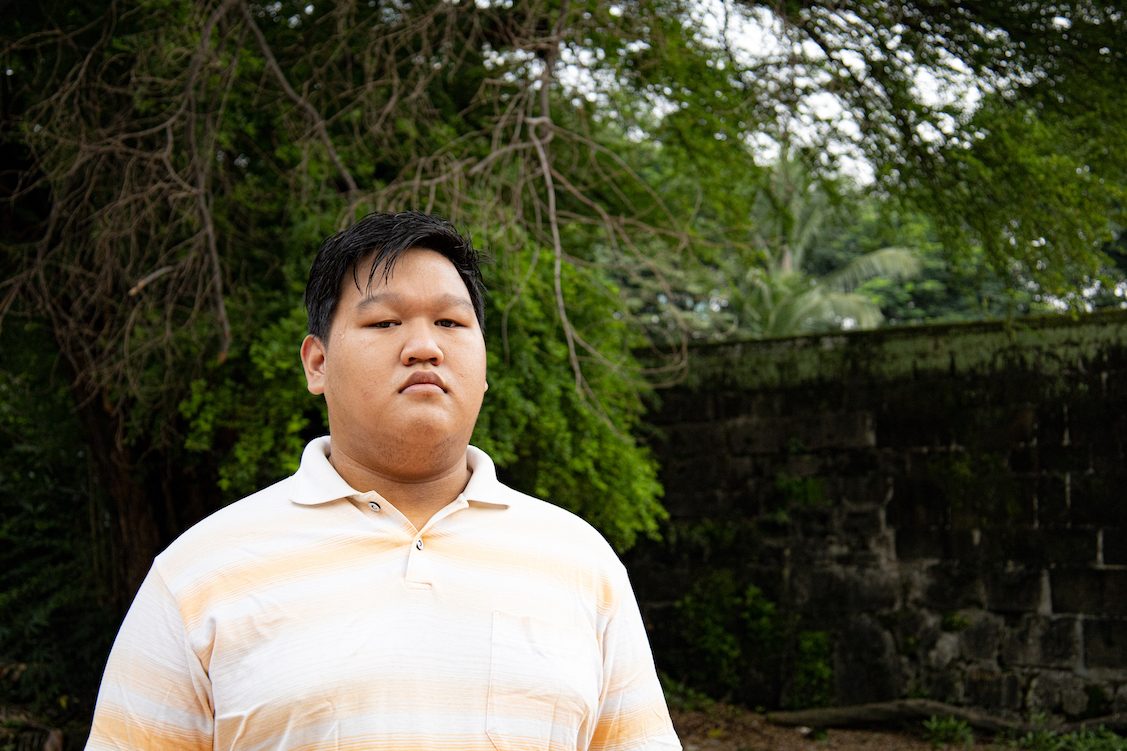
Since I was just 10 years old, I barely knew how it was to survive. I never knew how to adjust to being in a situation where you would actually experience survival of the fittest.
I evacuated to Manila when they started sending in C-130s. I had a backpack, a cash box, coins, and bottled water. My mom brought with her an extra cash box and our dog, who is also a Yolanda survivor. I actually saw bloated people on the sidewalk. That could have been my dead body with water inside my stomach. That could’ve been my mom. That could’ve been my uncle. That could’ve been my grandma. That could’ve been anyone that I grew up with.
We had a house maid. Her name was Manang Esther. Manang Esther had a big impact on our lives, from my mom, my uncles, my grandma, to me. Sadly, she was among the thousands of lives lost in Yolanda, along with her husband and two of her children. As part of paying our respect and gratitude to her and her family, we visit her grave every November 8.

The whole Eastern Visayas is so used to being struck by typhoons. The problem is, we did not know what a super typhoon was. It was not properly explained. We didn’t even know what a storm surge was.
It is true what they say: that climate change, day by day, is actually getting worse. It would take a very long time to actually stop people from destroying the planet because we only think of economic power. We don’t think we’re actually ruining our environment.
Looking back, Yolanda was a total shit show. Others are lucky that they never had to go through whatever hell was given to us. We were lucky enough to survive. I always look back on Yolanda and say I learned something about what could have been my death. It’s actually part of my will to go on. It’s in my will to help change, so here I am as a first year journalism major, trying to help people learn, give them the truth that they need. – Rappler.com
This story is part of a series of oral histories of climate disaster survivors, told to student journalists under the Climate Disaster Project, an international teaching newsroom based in Canada, in partnership with the Campus Journalism Lab, an initiative by professional Filipino journalists to train campus journalists and publications. Rappler is publishing this series ahead of COP28 in Dubai.
Add a comment
How does this make you feel?










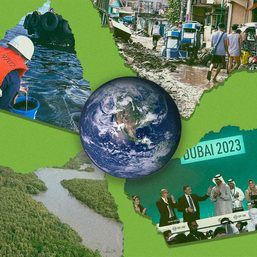
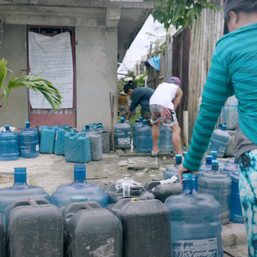
![[Under 3 Minutes] Kumusta na ang Yolanda housing projects?](https://www.rappler.com/tachyon/2023/11/title-card-ls-3.jpg?resize=257%2C257&crop_strategy=attention)
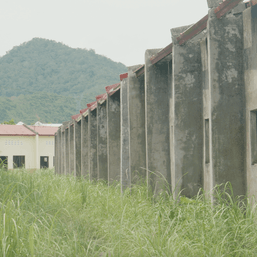
There are no comments yet. Add your comment to start the conversation.